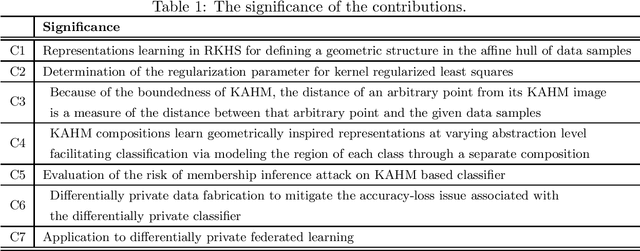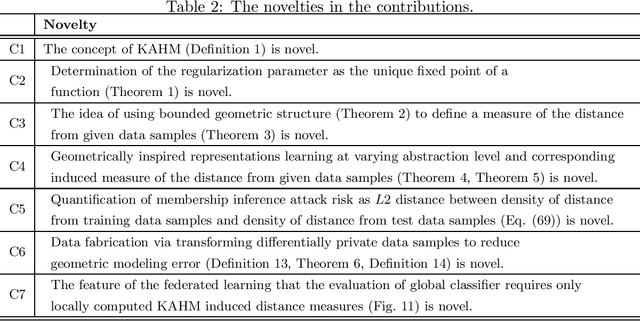Kernel Affine Hull Machines for Differentially Private Learning
Paper and Code
Apr 03, 2023



This paper explores the use of affine hulls of points as a means of representing data via learning in Reproducing Kernel Hilbert Spaces (RKHS), with the goal of partitioning the data space into geometric bodies that conceal privacy-sensitive information about individual data points, while preserving the structure of the original learning problem. To this end, we introduce the Kernel Affine Hull Machine (KAHM), which provides an effective way of computing a distance measure from the resulting bounded geometric body. KAHM is a critical building block in wide and deep autoencoders, which enable data representation learning for classification applications. To ensure privacy-preserving learning, we propose a novel method for generating fabricated data, which involves smoothing differentially private data samples through a transformation process. The resulting fabricated data guarantees not only differential privacy but also ensures that the KAHM modeling error is not larger than that of the original training data samples. We also address the accuracy-loss issue that arises with differentially private classifiers by using fabricated data. This approach results in a significant reduction in the risk of membership inference attacks while incurring only a marginal loss of accuracy. As an application, a KAHM based differentially private federated learning scheme is introduced featuring that the evaluation of global classifier requires only locally computed distance measures. Overall, our findings demonstrate the potential of KAHM as effective tool for privacy-preserving learning and classification.
 Add to Chrome
Add to Chrome Add to Firefox
Add to Firefox Add to Edge
Add to Edge